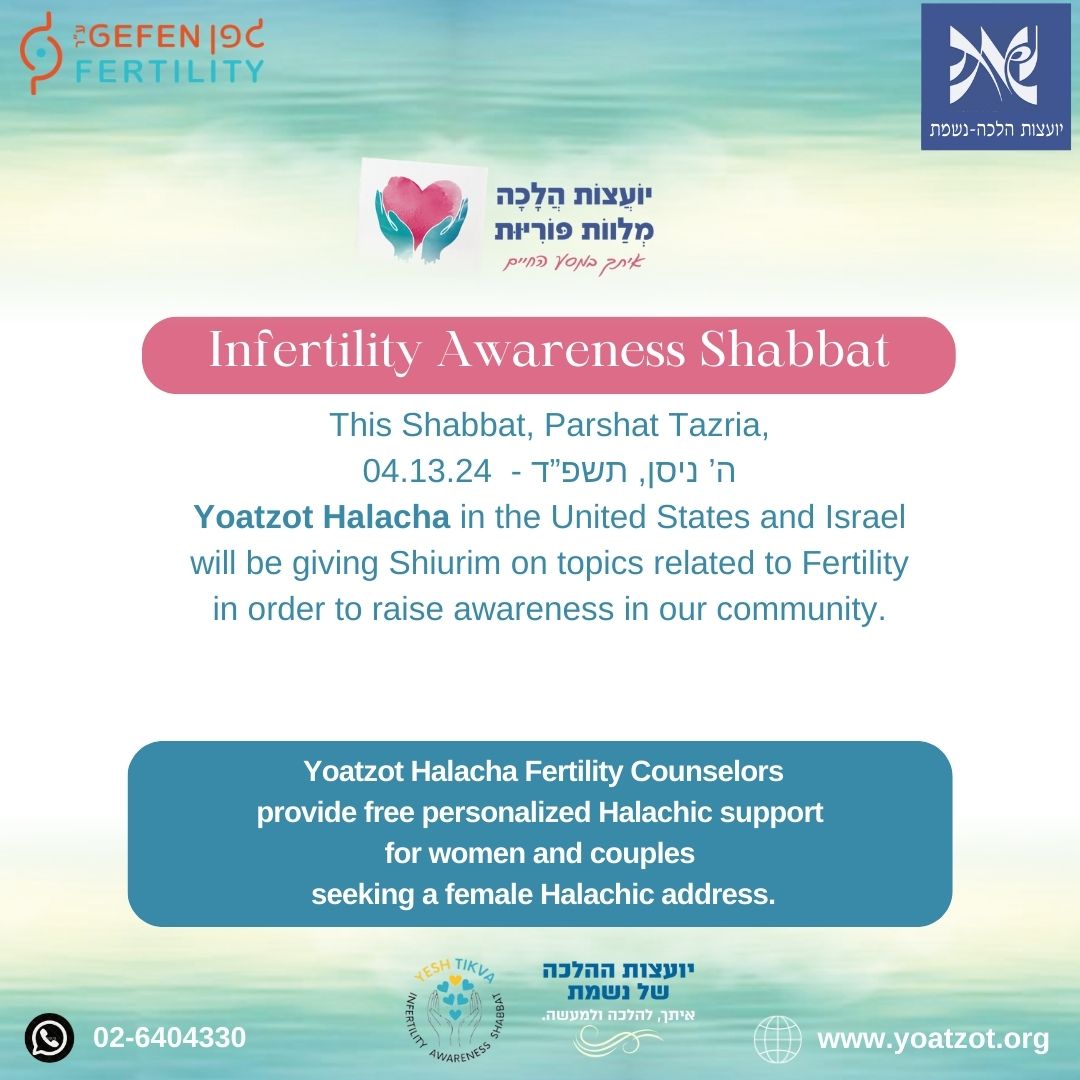Blood on hefsek – from wound?
17 August, 2014
 Question:
Question:I did a Hefsek Tahara tonight, the first bedika that I did had a small spot of blood on one side. I did a few more bedikot and each time there was a spot of blood in the same place, at the 4th bedika the blood spot was significantly bigger than before and more smeared. I assume that I have a cut or something and that is why I had the spot in the exact same place. I am not sure how to progress from here. If I do the bedikot won't I just be continually irritating the same spot? Am I not Tahor even though I think its reasonable to assume the blood is from a cut⁄scrape and not uterus?
I had a situation like this once previously and was told to only do the first and last bedikot and the first one was ok even though there was the same spot of blood.
Thanks you:
Answer:One may attribute a stain found on a bedikah to a wound if there is actual confirmation of the wound. One way of confirming a wound is to have a doctor or bodeket taharah perform an examination. If s/he actually sees a wound on the vaginal wall or on the cervix, the stain found may be attributed to that source.
However, it may possible for a woman to confirm the presence of a wound on her own. If she performs a bedikah and finds a stain in a specific part of the cloth, and suspects the blood is coming from a wound, she can perform a second bedikah to check if there is indeed a wound. If the cloth is again stained only in the area where she suspects she has a wound, she can assume there is a wound there. This is particularly true if the stained area is on the side/edge of the bedikah cloth, and if the bedikah caused her pain or discomfort.
In your situation, where it seems from repeated bedikot that you indeed have a wound, you should perform a bedikah taking care to avoid the area of the wound. While the stains found on the earlier cloths may indeed be attributed to the wound, it is necessary to get a clean hefsek taharah to begin counting the clean days. You should not perform a moch dachuk.
Once you get an acceptable hefsek taharah, you may then reduce the number of bedikot required to one bedikah each on days 1, 7, and one additional intermediate clean day. For those bedikot as well, try to avoid the area of the wound. If you find a stain from the area of the wound, that stain does not invalidate the clean days, but you should try again to get a clean bedikah.
In general, when making repeated attempts a hefsek taharah, we recommend taking a break between bedikot to let natural lubrication return. Too many attempts, or attempts too close together, can lead to or exacerbate irritation.
Please feel free to get back to us with any further questions.
This internet service does not preclude, override or replace the psak of any rabbinical authority. It is the responsibility of the questioner to inform us of any previous consultation or ruling. As even slight variation in circumstances may have Halachic consequences, views expressed concerning one case may not be applied to other, seemingly similar cases. All health and health-related information contained within Nishmat's Women's Health & Halacha Web site is intended to be general in nature and should not be used as a substitute for consulting with your health care professional. The advice is intended to offer a basis for individuals to discuss their medical condition with their health care provider but not individual advice. Although every effort is made to ensure that the material within Nishmat's Women's Health & Halacha Web site is accurate and timely, it is provided for the convenience of the Web site user but should not be considered official. Advice for actual medical practice should be obtained from a licensed health care professional.
For further questions or comments: 
The Nishmat Women's Health and Halacha Site is a public service of Nishmat, The Jeanie Schottenstein Center for Advanced Torah Study for Women. This project and others like it are made possible by contributions from people like you. If you have benefited from the service, and wish to enable us to help others, click here to donate.
Users of Internet filtering services: This site discusses sensitive subjects that some services filter without visual indication. A page that appears 100% complete might actually be missing critical Jewish-law or medical information. To ensure that you view the pages accurately, ask the filtering service to whitelist all pages under yoatzot.org.






 Question:
Question:







